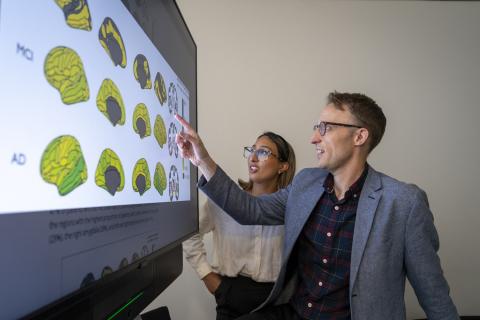Our Dementia Research Leader Fellows
We are supporting 12 exceptional dementia researchers with our Dementia Research Leader Fellowship programme. Here we look at a selection of work in more detail.
What other research projects are we funding?
Here you can find out about a selection of the many research projects that we are funding. Discover more about our researchers' work and how it will impact people affected by dementia.



